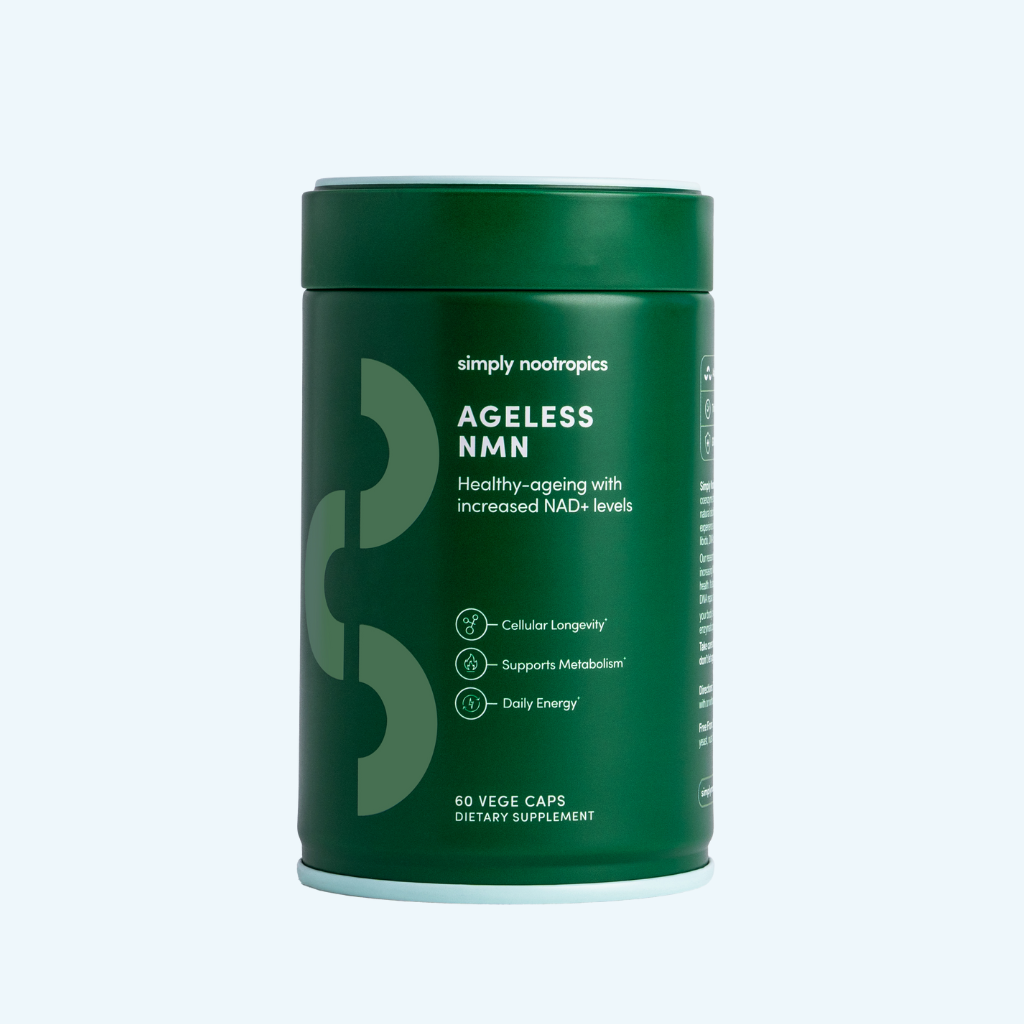Ageing isn’t a slow, steady slide. Biology shows that our cells don’t all tick to the same clock: some years bring only small adjustments, while others mark sharp shifts in energy, recovery, and renewal.
If you’ve ever felt that certain birthdays seem to change more than just the number, you might be right. Research suggests that our rate of ageing speeds up at key stages of life, especially in our 30s, 40s, and 50s. Understanding when and why those changes happen (and what to do about it) is the first step to ageing better, not faster.
The Myth of Linear Ageing
For centuries, we’ve thought of ageing as a constant decline: one long, gradual process. But advances in genetics, proteomics, and cell biology reveal that the body follows a pattern of ageing waves.
Our biological age (how old our cells actually act) doesn’t always match our chronological age. Some people in their 40s perform like 30-year-olds at the cellular level, while others show markers of accelerated ageing well before then.
These variations come down to three key systems:
-
Mitochondria, the energy producers that power every cell
-
Collagen networks, which support structure and elasticity
-
Repair pathways, like those driven by NAD⁺, which fix daily wear and tear
How well these systems adapt over time determines whether your body slows down gracefully or struggles to keep up. And according to longitudinal studies, there are three clear decades when those systems shift most dramatically.
Your 30s: The Subtle Shift
Your 30s are when small imbalances start to appear beneath the surface. Energy still feels plentiful, but the recovery that once came effortlessly now needs more deliberate care.
At this stage, your biology begins its first gradual slowdown:
-
NAD⁺ levels start to decline, reducing the raw energy available for cellular maintenance.
-
Collagen renewal eases off, leading to early changes in skin firmness and tissue elasticity.
-
Mitochondria become less efficient, meaning you use more resources for the same amount of energy.
-
Hormone rhythms stabilise at lower peaks, which can subtly influence mood, sleep, and drive.
You’re still resilient, but your body is beginning to trade growth for preservation. Habits now carry more weight: consistent exercise, sufficient sleep, and nutrient diversity help buffer these early shifts.
Supporting NAD⁺ production at this stage can be a strategic move: maintaining the cellular “currency” that fuels everything from DNA repair to focus and stamina.
Your 40s: The Acceleration Zone
For many, the 40s mark the first real inflection point in biological ageing. This isn’t just perception: several large cohort studies have found measurable changes in metabolism, cell turnover, and mitochondrial output beginning in midlife.
Why? Because the systems that used to renew in the background start to require more active support.
-
Mitochondrial fatigue deepens, and your cells produce slightly less ATP, the body’s energy molecule, each year.
-
Protein turnover slows, meaning your body replaces fewer structural proteins than it breaks down.
-
Hormonal balance fluctuates, influencing how efficiently you maintain muscle, bone density, and cognitive sharpness.
-
Oxidative defence weakens, making cells more sensitive to environmental stress.
This is also the decade when sleep, recovery, and nutrition make the most visible difference. People who train, rest, and supplement intentionally through their 40s often maintain higher energy and resilience than those who don’t, not because they’re lucky, but because biology remains remarkably adaptable.
The takeaway? The 40s are not a time of inevitable decline, but of adjustment. It’s the decade when active maintenance - through movement, diet, and smart supplementation - delivers the greatest return on effort.
Your 50s: The Reset Decade
By your 50s, ageing becomes more visible, but it’s also more manageable than many realise. Your body now prioritises stability over growth; cell renewal slows, but it doesn’t stop.
Collagen and NAD⁺ levels continue to fall, mitochondrial density decreases slightly, and metabolic flexibility narrows. You may notice slower recovery, lighter sleep, or changes in skin texture - all natural signs that energy production has shifted gears.
Yet research into longevity now points to this decade as a reset window, not a point of no return. The key is to signal the body that energy and repair still matter.
That signal can come from:
-
Regular resistance training to encourage new mitochondrial growth
-
Consistent sleep schedules to reinforce circadian alignment
-
Nutrients that feed the NAD⁺ cycle and cellular metabolism
-
Mindful relaxation to calm systemic stress responses
The 50s reward consistency. Instead of chasing youth, you’re investing in performance, teaching your cells to keep functioning at their best, long past their expected curve.
Why Energy Is the True Marker of Ageing
Across all three decades, energy - not appearance - is the most reliable indicator of how fast you’re ageing.
Every process that defines vitality, from collagen synthesis to cognitive clarity, depends on how efficiently your cells convert nutrients into energy. When that system weakens, renewal slows and visible ageing follows.
That’s why longevity science now focuses on metabolic integrity: maintaining the internal engine that powers every cell. The goal isn’t to freeze time but to support the underlying processes that let time pass more gracefully.
Supporting Your Biology Across the Decades
So, what makes the difference between accelerated and healthy ageing? Researchers point to a combination of lifestyle, environment, and molecular support. Here are five habits that strengthen the foundation no matter which decade you’re in:
-
Prioritise restorative sleep. Deep sleep is when mitochondria repair, collagen rebuilds, and hormones stabilise. Aim for consistent sleep and wake times.
-
Train for strength. Building and maintaining lean muscle keeps metabolism high and sends strong “youthful” signals to your cells.
-
Eat for balance. Whole foods rich in fibre, plant compounds, and healthy fats provide the raw materials for cellular resilience.
-
Stay consistent with recovery. Meditation, stretching, and time outdoors aren’t extras; they directly influence how well your body repairs.
-
Support your NAD⁺ cycle. Supplementing NMN (nicotinamide mononucleotide) helps sustain NAD⁺, the molecule that drives cellular energy, repair, and renewal.
Together, these habits protect what researchers call “healthspan”, the years you live with high function, not just long life.
Ageless NMN: Designed for the Decades That Matter Most
Modern longevity research has put NAD⁺ at the centre of healthy ageing. It powers mitochondrial function, supports DNA maintenance, and fuels the processes that keep cells youthful. But NAD⁺ levels naturally fall by up to 50% between early adulthood and midlife, making it harder for your cells to perform and repair efficiently.
NMN (nicotinamide mononucleotide) is a direct precursor to NAD⁺, helping replenish cellular stores and sustain energy at the source.
Ageless NMN is formulated to support this system throughout midlife. If you’re protecting your 30s, navigating your 40s, or recalibrating your 50s, supporting NAD⁺ at the cellular level with Ageless NMN helps your biology stay aligned with how you want to live.
Because ageing doesn’t happen in one moment, and with the right support, neither does slowing it down.

















